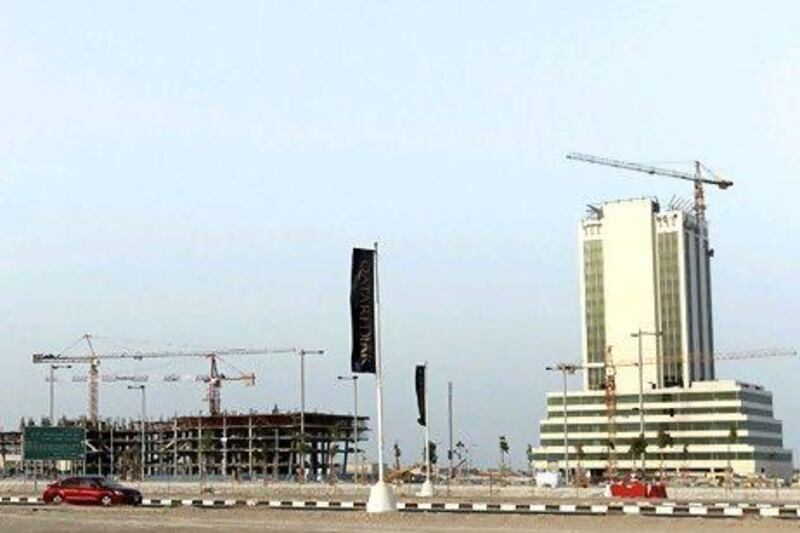International investors are increasingly concerned about economic overheating in Qatar, which would force the central bank to tighten monetary policy at a time when the nation is engaged in a massive building programme ahead of the 2022 Fifa World Cup.
The Qatar economy is expected to grow at 6.3 per cent this year, the fastest rate in the Arabian Gulf. The expansion has brought in tandem a rapid credit growth that "may now prompt fears of overheating" as loans soar above bank deposits, Capital Economics wrote in a report last week. "The central bank may need to intervene to ensure financial stability."
In the five years leading up to 2016, Qatar's spending plans on infrastructure alone are expected to total US$125 billion (Dh459.13bn). These include building a new airport, a metro line, numerous road and lighting projects, and Lusail City, the precinct that will host the 2022 World Cup final.
Concerned about possible monetary tightening, international investors have withdrawn a total of $588 million out of Qatari equities so far this year, with net outflows during all but two of the past 16 months, according to data compiled by Deutsche Bank.
Total lending by banks increased to represent 120.1 per cent of deposits at the end of last month, according to the Qatar central bank. The figure implies that Qatari banks are reliant on short-term borrowing from capital markets and other banks.
Yet at the same time, international lenders cut their exposure to Qatar by $11.5bn during the second quarter of the year, the first period in which foreign bank exposure to the country has decreased since last year, according to data from the Bank for International Settlements.
The local bank lending figure is "a concern", said Alia Moubayed, director of research at Barclays.
"The Qatari banks are very solid, but they're tapping more volatile sources of funds to sustain the growth of the economy. There's increased reliance of Qatari banks on interbank lending."
The situation is reminiscent of that in Dubai before the global financial crisis, observed Ms Moubayed.
"That was the situation in 2008, when UAE banks were taking interbank lending from the rest of the world," said Ms Moubayed. "When the market turned, banks needed this liquidity."
Qatar's gas wealth - which underpins its finances - is also in question.
In a research report, Barclays noted that Italy's Edison, a unit of France's EDF, successfully renegotiated a 25-year contract with Rasgas signed as recently as 2009, which Edison said would provide a €450m (Dh2.13bn) boost to its earnings.
Barclays estimates this reflects a 10 per cent dip in Edison's unit price for gas. It also sets a precedent for other buyers, implying that income at Rasgas, the country's second-biggest supplier, could dip further.
"The success of Edison in arbitration could well drive other buyers to look for discounts in the coming months," Barclays wrote in its report.
The chairman of Tokyo Gas, one of Qatar's largest customers, said this year that he believed the current system of linking gas prices with oil is inflating Japan's import bill.
Bankers said that increased capital needs at home could mean that even cash-rich Qatar could feel the squeeze if global markets unexpectedly froze. "The risk isn't solvency, but they do run a risk of a liquidity crunch," said Nick Stadtmiller, the head of fixed income research at Emirates NBD.





